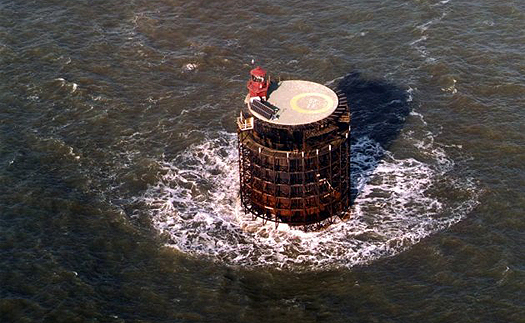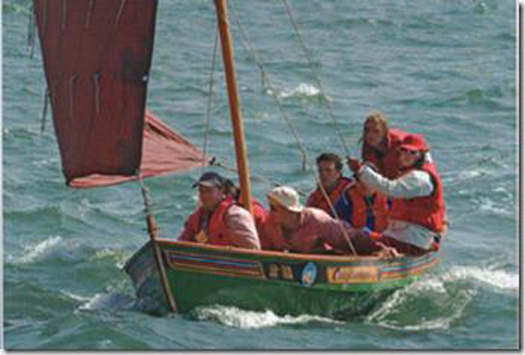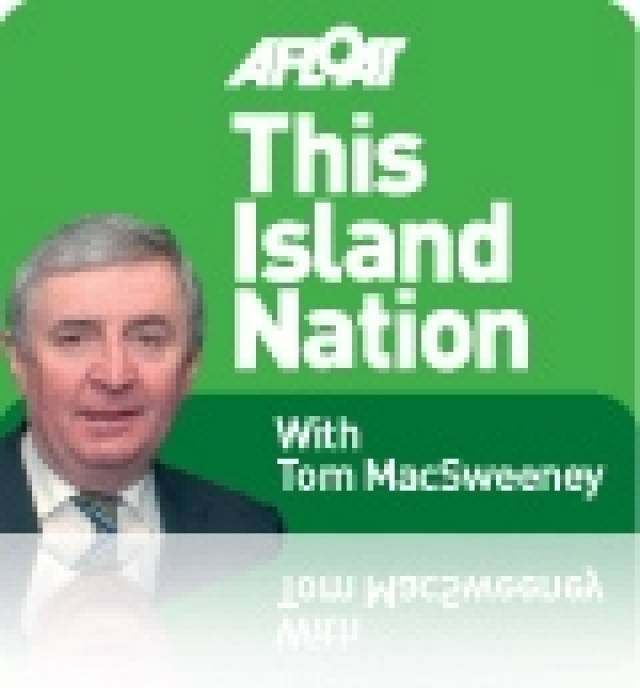An amazing sea rescue, NAB-ing change, UK politicians support what Ireland's will not, sailing in Galway and Mayo and much more in your TIN this week.....
AMAZING SEA RESCUE
A 31-year-old seafarer has survived ten hours of swimming after ships in the Atlantic Ocean 525 miles offshore shouting to be rescued. It has been described as one of the most amazing sea survival and rescue stores. He fell off his ship after feeling faint when he leaned against a railing but blacked out, collapsed and fell overboard. The crew of the Maersk Bintan did not miss him for 2 hours after he had fallen off at 0715 hours. At that stage Tanawoot Pratoom, who came back to consciousness when he hit the water, had been swimming after ships he saw and shouting for help. The ships' crew had called a distress alert. Five vessels as well as a search-and-rescue plane were involved and the US Coast Guard was using drift simulation technology to locate his position. His own vessel doubled back on its course. He was spotted by another vessel involved in the search, the bulk carrier, Stalo. After ten hours he was pulled from the water by crewmates of his own ship. He said he had followed safety procedures by removing his boots and overalls in the water and had spent the ten hours swimming towards passing ships until he was sighted. His ship was en route from Panama to Algeciras where the seafarer was repatriated to his home in Thailand. He is married and has two children, an 8-year-old daughter and a three-month old son.
REFITTING THE NAB

The NAB Tower
The NAB Tower is a vital aid to navigation in the Solent but the structure has been deteriorating and is being restored by Trinity House, the UK lighthouse authority. It was originally built as a British defensive structure for the Admiralty in 1918 and has been used as a lighthouse since 1920 replacing the previous NAB Lightvessel. It was staffed by Lightkeepers until automation in 1983. At present the helicopter pad atop the lighthouse cannot be used and boat access has been difficult due to the deteriorating condition of the external superstructure. Trinity House is to extend the lifespan of the NAB Tower by up to 50 years. The height will be reduced and all external steel and cladding will be replaced by concrete. Work is scheduled to be completed in the summer of next year. It will be suspended during the winter due to difficult seasonal conditions.
YOLING IN GALWAY

The Ness Yoal
The little beauty pictured here visited Galway Bay Sailing Club from France, but originated in Norway, were exported to the Shetlands and are now active in France, demonstrating the great linkage internationally through traditional sailing boats. The 'Yoling Club Peillac' is based in the village of Peillac, in South-East Brittany. It was created to promote traditional sailing amongst youth and especially the practice of navigation on the Ness Yoals, following the construction of three of these boats in 2000. The club aims to connect with other associations sharing similar interests in 'sail and oar' boats and to encourage the construction of traditional yachts and organises events to promote cultural heritage related to traditional sailing.
Ness yoals are wooden open boats of 6.90 m in length, rigged with a sail to the third of mahogany colour. The crew is composed of 7 people (six rowers and a coxswain). The Ness Yoals originated in Norway hundreds of years ago and were exported to the Shetland islands in Scotland, where it has a special place in the history of inshore fishing. It was considered a very seaworthy vessel and the seamanship of the men who crewed them, made the
difference between survival and starvation for many families there. Despite the development of commercial fishing, which favoured larger-decked boats, the Yoal has survived into the 21st century, due to the interest in Yoal-rowing as a sport and the craftsmanship of boat-builders like Tommy Isbister and Ian Best who still produce these craft.
UK POLITICIANS BACK SAIL TRAINING
Renowned naval architect Colin Mudie has designed a proposed new UK sail training flagship. Riding on the tide of successfully staging the Olympics and the Diamond Jubilee celebration a charitable trust has been set up called – UK Flagship – to promote the concept of a 650-foot tall ship which would be the largest and most advanced square-rigged vessel in the world. It is envisaged as a sail training ship with the additional role of being a 'floating ambassador' for the UK promoting trade and scientific research, with facilities aboard including conference rooms, oceanography and marine biological study resources and could carry up to 200 trainees. The cost is put at stg£80m., to be raised without State support. Launch of the ship is targeted for 2016 and stg£15m. has already been raised according to the backers, of which the Principal Trustee is Royal Navy Rear Admiral David Bawtree. UK sailing journalist Libby Purves is also involved in the project. The Daily Mail
Newspaper has launched a fundraising campaign for the vessel.
While not allocating any funding, leading UK politicians have pledged support and backed the project, showing at least an interest in sail training which their Irish counterparts lack. Deputy UK Prime Minister Nick Clegg said the project provided "a brilliant opportunity to promote the marine world and life at sea" while the UK Labour Party Leader, Ed Milliband, said it was a cause which deserved support because of its aim of "giving opportunity to youth."
The tall ship will feature four masts acting also as solar panels. Colin Mudie designed the sail training ships Royalist and Lord Nelson.
Operating tall ships is difficult in current economic times although the South African Government approved the conversion of a former research vessel by the country's Maritime Safety Authority to carry 50 cadets for sea training. The country has less than 2,400 seafarers and the government has adopted a policy to increase annual officer cadet intake for training which at present is 120 per year.
MAYO SAILING CLUB
When in Mulrany, Co.Mayo, this summer I enjoyed the idyllic view of Clew Bay and the 365 islands, one for each day of the year as local people proudly claim. Mayo Sailing Club was founded in 1982 and has this area as its immediate sailing grounds.
This is a thriving vibrant club, based at Westport, with a diverse range of sailing activities throughout the season - cruiser racing on Thursday nights, junior and senior dinghy racing on Tuesdays and cruising voyages.
Thirty-six trainee sailors from the club had an overnight sailing trip from Rosmoney Pier to Inishoo Island in Clew bay. It concluded the Adventure Module of the ISA Small Boat Sailing Scheme and also marked the end of the Junior Sailing course. The return voyage involved the trainees sailing a challenging beat home on a route through around many of the islands before arriving at Mayo Sailing Club.
FISHING LEADER HONOURED

In London this week Sean O'Donoghue CEO of the Killybegs Fishermen's Organisation was presented with the Fishing News International magazine's Person of the Year award. The presentation was made by IntraFish Fishing Publications Editor Cormac Burke who is originally from Killybegs.
































































